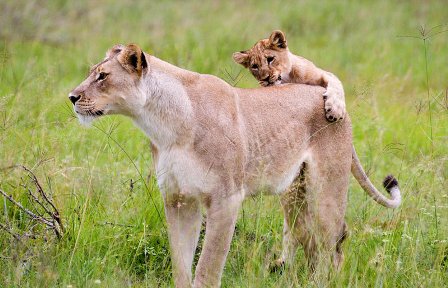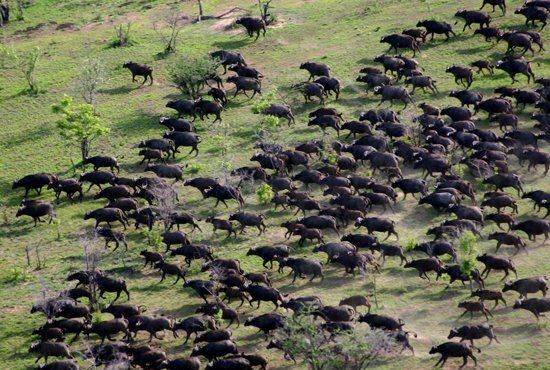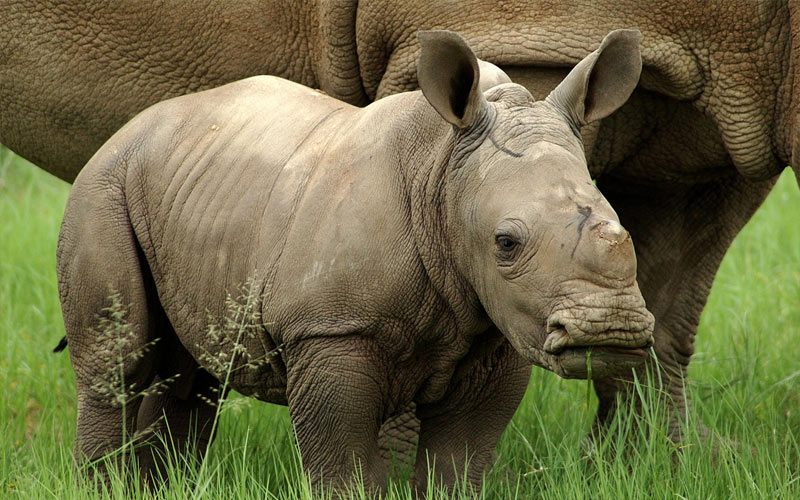Insider Tips: Safari
source:http://www.cntraveller.com/news/2011/may/insider-tips-safari
What's the best time of year to go on safari?

It really depends on what kind of traveller you are and what part of Africa you are visiting. In East Africa, where we specialise, the off-seasons (April, May and November) are relatively short, so travellers have great flexibility on when they choose to go. The wildebeest migration that runs through the Maasai Mara in July and August is a must-see but its also the peak tourist season.We often recommend January through to the end of March, as this allows safari-goers to escape the European winter months and experience some of the best game viewing of the year. The coast has different seasons to upcountry, so if the timing's wrong for wildlife viewing, it might not be for making the most of East Africa's beautiful coastline.
What are the pros and cons of different safari destinations? Which is your favourite?
Each national park or reserve in East Africa has something unique to offer: from wide-open savannahs teeming with game to sand dune deserts, from glorious white beaches to snow-capped mountains, there are very few places on earth where you can experience all of these in one trip. Best of all, Nairobi's only an eight-hour flight from London!
Areas with a very low tourist footprint are our favourites. We particularly promote the community-led conservation projects orchestrated by groups such as the Northern Rangelands Trust in Northern Kenya. We believe that collective management of conservancies represents the future of conservation in Africa.We exclusively send people to properties that we know. Usually they are owner-managed and we know the owners personally. The ones that we prefer are the ones that give the greatest feeling of wilderness and exclusivity.
What are your top tips for first-time safari goers who are keen to take great photos?

If impressive photographs are important to you, invest in some good equipment. You will kick yourself if you arrive home after two weeks having been armed solely with a point-and-shoot camera. Talk to an expert prior to coming on safari and get yourself set up with an SLR with at least two lenses, which will give you flexibility for a wide range of shots. Regardless of equipment, the trick to returning with great photos is always having your camera nearby - on safari you never know when you will see something spectacular.
Don't make the mistake of sacrificing special moments for photographs - put the camera down occasionally and enjoy what you're looking at. Besides wildlife, the tribes of East Africa are all incredibly colourful and with permission, they are often happy to be photographed.
What else should they pack?
Comfortable clothes! Too many people think that safari is a fashion parade to see who can look most like Dr Livingstone. Yes, there will be times where long trousers are needed on a cooler evening or a bush walk, but in general the formality of traditional safaris is something that we think can be confined to the past - you're on holiday!
Binoculars are another essential. You will often be scanning for that elusive leopard or notice something in the distance and not be able to get any closer to the action. Your own pair of 'bins' are vital for these moments. It can be very frustrating if you are not able to join in and it's even more annoying when you have to pass your precious binoculars to someone else!
We provide our guests with packing lists that meet the dynamics of their itinerary. Some areas are hot,some chilly, some dry, some wet; there is no one-size-fits-all to packing lists.
What are the key things that first time safari-goers should know about safety?
Safety in the bush is all about common sense. No animal is out to get you so don't spend your safari in perpetual fear of a snake or scorpion lurking behind every corner. That said, be aware that there is always a possibility of a dangerous animal nearby. That is part of the appeal of safari, isn't it?
Only travel with a reputed operator. In the right hands you couldn't be safer. East Africa has some of the finest guides to be found anywhere, each with incredible knowledge and most importantly, a deep understanding of wildlife and the signals they give. All the best camps take safety very seriously. Often they are totally open to the wild. You may have elephants wondering through during the day or lions outside your room at night. Obviously when these kinds of things happen keep your distance and if you are inside stay where you are. Try and enjoy the experience (easier said than done when a lion is roaring outside all night long… again!). Despite its reputation, if you are sensible, Africa is no less safe than most parts of the world.

What's your absolute top tip about safaris for neophytes?
First-time safari-goers tend to try and do too much. If you are travelling for a week, we don't recommend you try and do more than two destinations. If you have two weeks, then five is about right. The tendency is, quite understandably, to whizz around as many national parks as you can without really absorbing a particular one. We suggest you slow down, soak up your surroundings, explore and discover and above all, learn each area, its animals and its culture.
Be open-minded and patient. Don't expect to see a lion around every corner. Although it may often seem like it from BBC documentaries, that's not how it works.The greatest satisfaction can be gained by taking notice of the other things - the scenery is always fantastic - make the most of being out of the city, take notice of the birdlife, the insects, etc. If you listen to your guides and ask lots of questions you will gain much more than if you are just waiting to tick off the 'Big Five'.
Visit http://www.37east.co.uk for more details.





